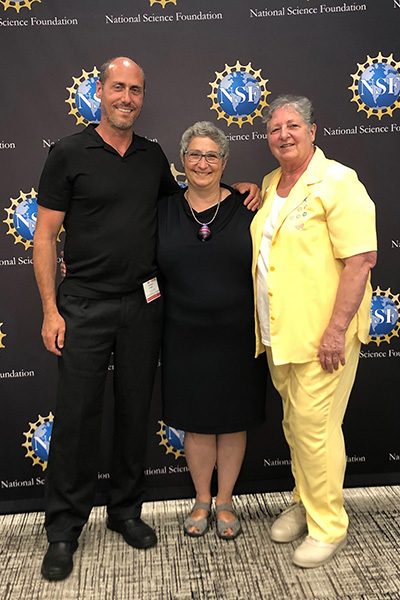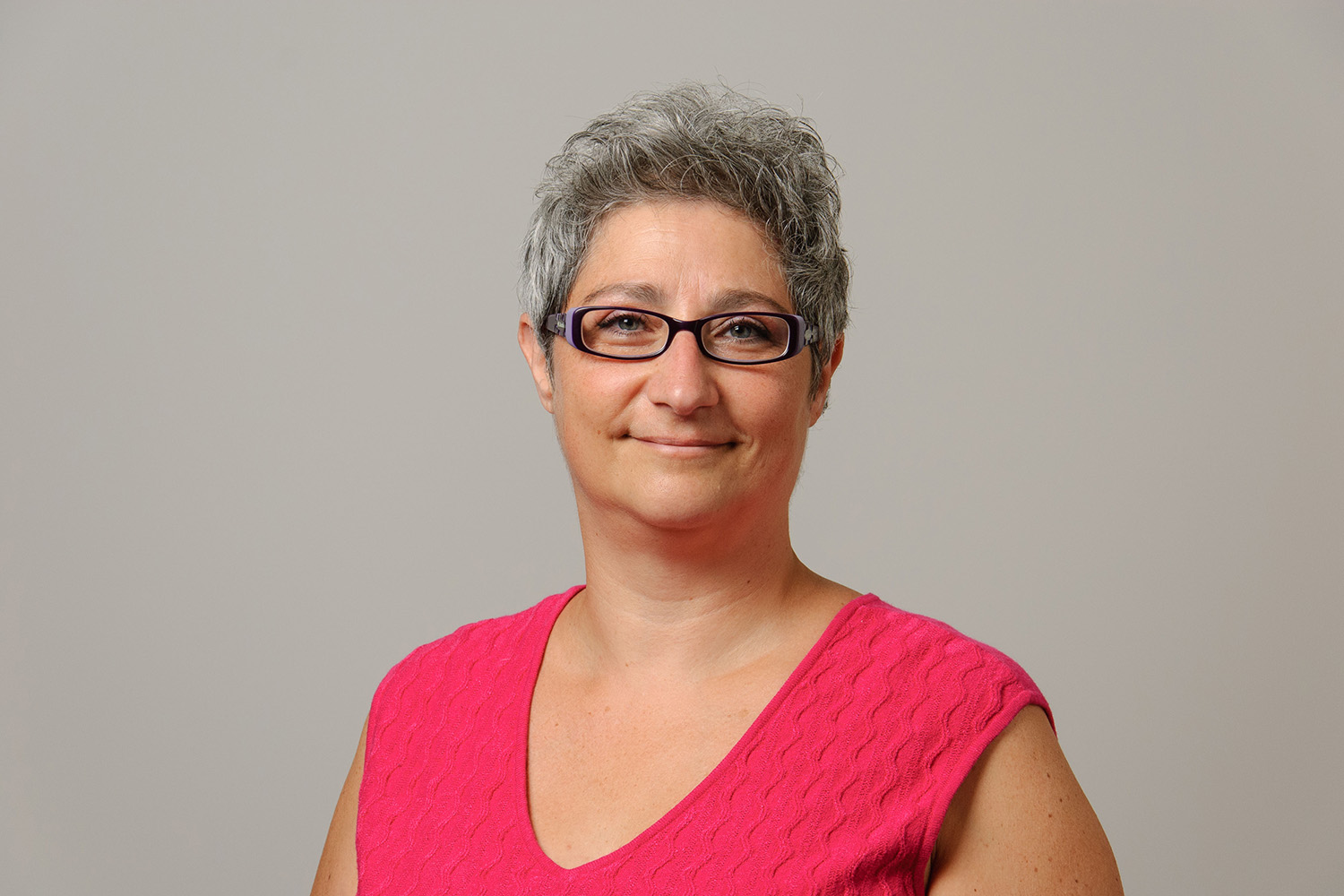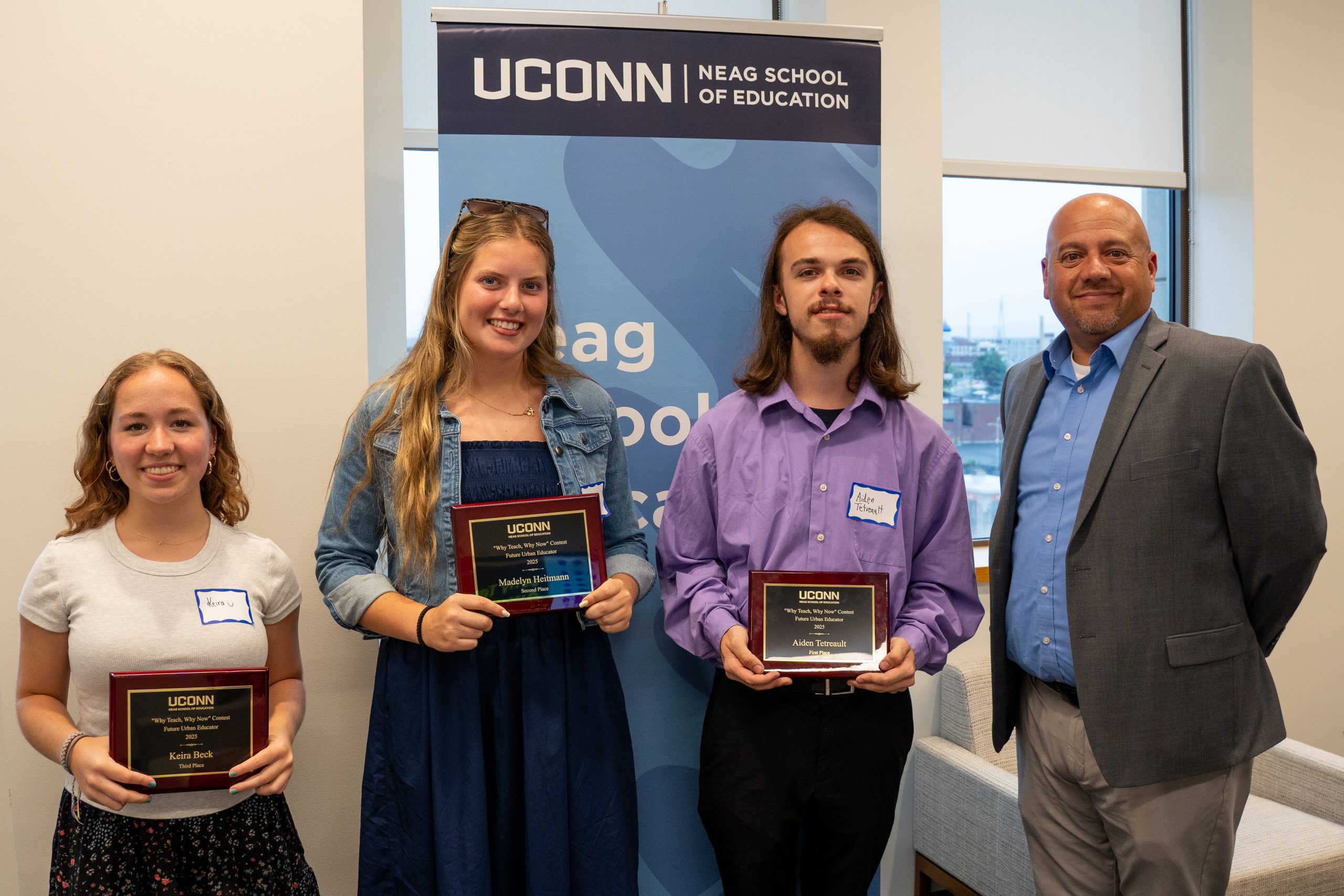
In a ceremony held on Thursday at the Daughters of the American Revolution Constitution Hall, Associate Professor of Psychological Sciences and Linguistics Marie Coppola was presented with the 2019 Presidential Early Career Award for Scientists and Engineers (PECASE).
Coppola, who studies the development of sign language and cognitive development in Deaf sign language speakers, is one of only four Connecticut scientists to be honored with the award.
The PECASE is the highest honor bestowed by the United States Government to outstanding scientists and engineers who are beginning their independent research careers and who show exceptional promise for leadership in science and technology.
Established in 1996, the PECASE acknowledges the contributions scientists and engineers have made to the advancement of science, technology, education, and mathematics (STEM) education and to community service, as demonstrated through scientific leadership, public education, and community outreach.
Coppola was nominated by the National Science Foundation, which supported her 2016 $1.2 million Early Career (CAREER) award. The award was one of the largest ever granted by the program.
Coppola’s work examines how language experiences affect children’s cognitive development. She studies children who learn American Sign Language (ASL) from birth and compares them with those who are exposed to language later in life and with their hearing peers. Her work directly impacts the more than 80,000 deaf or hard of hearing children enrolled in U.S. public and private schools.



